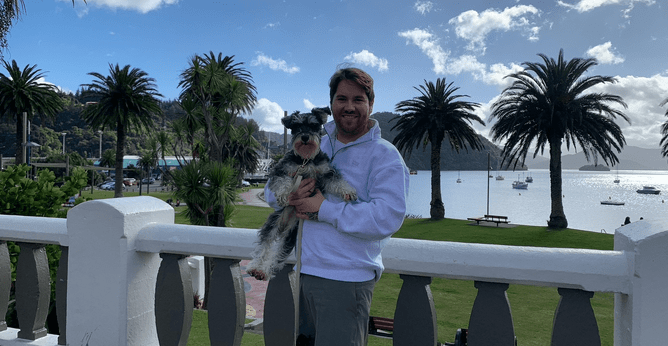Wellbeing should be important for us all and it is often the first thing that goes to the bottom of the list when we are busy working RMOs juggling exams and family commitments. As is often the story, when it feels like the health system is falling down around us, we tend to enthral ourselves in staying late or starting early to help the wheels keep turning, but actually our wellbeing should be the first thing we start our day focussing on.
Everyone is working so hard, and we have had real people within our communities succumb to the effects of burnout, some whom won’t ever recover.
Unfortunately, nobody is immune to burnout, stress, and physical exhaustion. We are not machines, and whilst we can continue under pressure for a while, there will be a time when burnout is unavoidable if we don’t protect ourselves and put the right supports in place. While sometimes it feels like there are no options and we have to keep running on the metaphorical mouse wheel - winning and being more productive sometimes is not about going harder, but rather slowing down. This sentiment, I know may feel unattainable in busy hospitals across the country, but I encourage you to start by seeing if there is one small thing you can change in your day. STONZ will of course advocate day in and day out for RMO wellbeing and working conditions, however basic wellbeing should exist at a personal level as well.
I wanted to share some learnings I have had over the past year as I gave in to my own stress and burnout, namely that of being proactive in my response to stress (work, home or otherwise), such as the regularity and formalised nature of psychology and counselling support (i.e. EAP support - accessible through work). I see this as a proactive, not reactive measure. It gave me a space to be able to intentionally reflect and productively develop strategies to mitigate the effects of stress and burnout, not only in work settings but in my personal life as well (as we are all normal people with more going on than just the daily hum of the hospital).
As I move through my journey as an RMO, my other reflection is that money does not replace wellbeing, so as a member of the STONZ executive and being part of the negotiation team, I’ve realised that contract negotiations is not the be all and end all of wellbeing. STONZ has an obligation to continue advocacy to our employer to encourage compliant safe rosters, and avenues for real, tangible support.
One project our Psychiatry Trainees worked on last year was to pull together a centralised place for all wellbeing resources, there is so much support out there (sometimes it can be a bit overwhelming knowing where to start) – so our website is a great place. Also, acknowledging the team that advocated and worked to bring this together. You can find the resources HERE.
We have also been meeting with Dr Jo Sinclair and Dr Jo Cole who are working towards implementing a Wellbeing Index in partnership with the Health Roundtable to start to measure and understand the health and wellbeing of RMOs and the wider health workforce across Te Whatu Ora. The tool is designed by clinicians as a way to help us better understand our overall wellbeing, and areas of risk. It is 100% confidential and we encourage you to sign up. For a long time, we have measured and monitored so many other aspects of healthcare that relate to patient safety, productivity and efficiency but not the wellbeing of our workforce. The Wellbeing index tool is a way for us to each start monitoring our own wellbeing.
The link for more information and to sign up was included in the recent newsletter introduction. You can also find more information about the index on your local hospital intranet. Once it has been shared and is being used, we understand that the next steps will be to provide data to decision makers and to help identify whether there are certain specialties, departments or even Districts that need targeted support and the aim of this index is to help direct resources.
Finally, I believe we must increase our overall awareness and understanding of the red-flags and symptoms to look out for amongst our colleagues, and support and foster normalisation of seeking help when we are stressed, both formally and informally. This is an area I believe we do poorly in, and we need to have a collective shared value of encouraging cultural change within our households and departments. The RMO Journey is a long one, and we cannot do it alone – there is nothing weak about asking for help, it shows strength, and I believe we will be stronger as individuals and as a group if we get better at this.
Jordan Tewhaiti-Smith
O&G Trainee & STONZ Executive
A note on EAP Services for RMOs
You can access EAP directly through the RMO pathway support via Raise (Southern Cross). This can be done by calling 0800 735 343, visit the website or they have an app you can download.
EAP also offers career support, financial and legal information, support for immediate whānau and Rongoā Māori. And recently couples counselling has also been approved as part of the RMO pathway. At a minimum, RMOs can access up to 6 sessions at no cost and more can be sought if needed. Noting it is 100% confidential and there is no identifying information provided to Te Whatu Ora through EAP.

